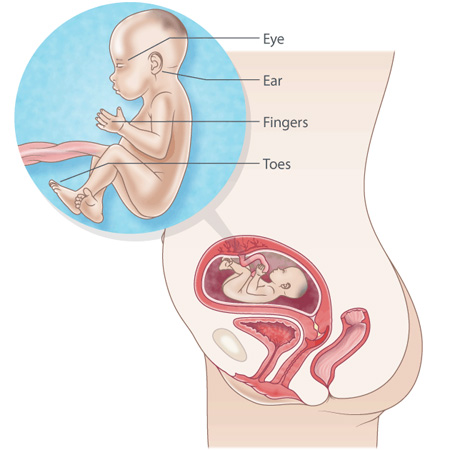
Week 20 of Pregnancy: A Comprehensive Guide
Introduction
Congratulations on reaching the 20th week of your pregnancy! This is an exciting milestone, as you are now halfway through your journey. At this stage, your baby is growing rapidly and developing new skills. As a mother-to-be, you may experience a range of physical and emotional changes. This comprehensive guide will provide you with all the information you need to know about week 20 of pregnancy.
Fetal Development
- Size and Weight: Your baby is now about the size of a banana, measuring approximately 6 inches in length and weighing around 10 ounces.
- Physical Appearance: Your baby’s skin is still thin and translucent, but it is beginning to develop a layer of fat. The hair on their head is starting to grow, and their fingernails and toenails are forming.
- Organ Development: All of your baby’s major organs are now fully formed and functioning. The lungs are beginning to produce surfactant, a substance that will help them breathe after birth. The kidneys are filtering waste products from the blood, and the liver is producing bile.
- Movement: Your baby is now very active and you may feel them moving several times a day. These movements, known as quickening, can be a wonderful and reassuring sign of your baby’s well-being.
- Sensory Development: Your baby can now hear sounds from the outside world, including your voice and music. They can also taste and smell, and they may respond to bright lights.
Maternal Changes
- Uterus: Your uterus has now grown to the size of a grapefruit and is located just below your belly button. You may feel some discomfort or pressure in your abdomen as your uterus expands.
- Weight Gain: You should have gained between 10 and 15 pounds by now. Most of this weight gain is due to the growth of your baby, the placenta, and the amniotic fluid.
- Breasts: Your breasts are preparing for breastfeeding. They may become larger and tender, and you may notice some leakage of colostrum, a yellowish fluid that is the precursor to breast milk.
- Skin: Your skin may become darker and develop patches of discoloration, known as melasma. This is caused by increased levels of hormones.
- Hair: Your hair may become thicker and shinier due to increased blood flow.
- Mood Swings: You may experience mood swings during pregnancy, as your hormones fluctuate. These mood swings can range from feeling happy and excited to feeling sad and anxious.
Common Symptoms
- Back Pain: As your uterus expands, it can put pressure on your back, causing pain.
- Leg Cramps: Leg cramps are common during pregnancy, especially at night. They are caused by increased pressure on the nerves and blood vessels in your legs.
- Constipation: Pregnancy hormones can slow down your digestion, leading to constipation.
- Heartburn: Heartburn is a burning sensation in your chest, caused by stomach acid backing up into your esophagus.
- Frequent Urination: As your uterus grows, it can put pressure on your bladder, causing you to urinate more frequently.
- Fatigue: You may feel tired and fatigued during pregnancy, as your body is working hard to support your growing baby.
Prenatal Care
- Prenatal Appointments: You should continue to attend prenatal appointments every 4 weeks. At these appointments, your doctor will check your weight, blood pressure, and urine. They will also listen to your baby’s heartbeat and measure your belly to monitor your baby’s growth.
- Ultrasound: You may have an ultrasound scan at week 20 to check your baby’s growth and development. This scan can also help to determine your baby’s sex, if you wish to know.
- Blood Tests: Your doctor may order blood tests to check for anemia, gestational diabetes, and other potential complications.
Lifestyle Recommendations
- Diet: Eat a healthy diet that includes plenty of fruits, vegetables, and whole grains. Avoid raw or undercooked meat, fish, and eggs.
- Exercise: Exercise regularly, but avoid strenuous activities. Walking, swimming, and yoga are all good choices.
- Sleep: Get plenty of sleep, as your body needs time to rest and recover.
- Stress Management: Find healthy ways to manage stress, such as yoga, meditation, or spending time in nature.
- Avoid Alcohol and Smoking: Alcohol and smoking can harm your baby. Avoid these substances throughout your pregnancy.
Emotional Well-being
Pregnancy can be an emotional rollercoaster. It is important to be kind to yourself and to seek support from your partner, family, and friends. If you are experiencing severe anxiety or depression, talk to your doctor.
Conclusion
Week 20 of pregnancy is a time of significant growth and development for both you and your baby. By understanding the changes that are occurring, you can better prepare for the rest of your pregnancy and the arrival of your little one. Remember to take care of yourself both physically and emotionally, and to enjoy this special time in your life.